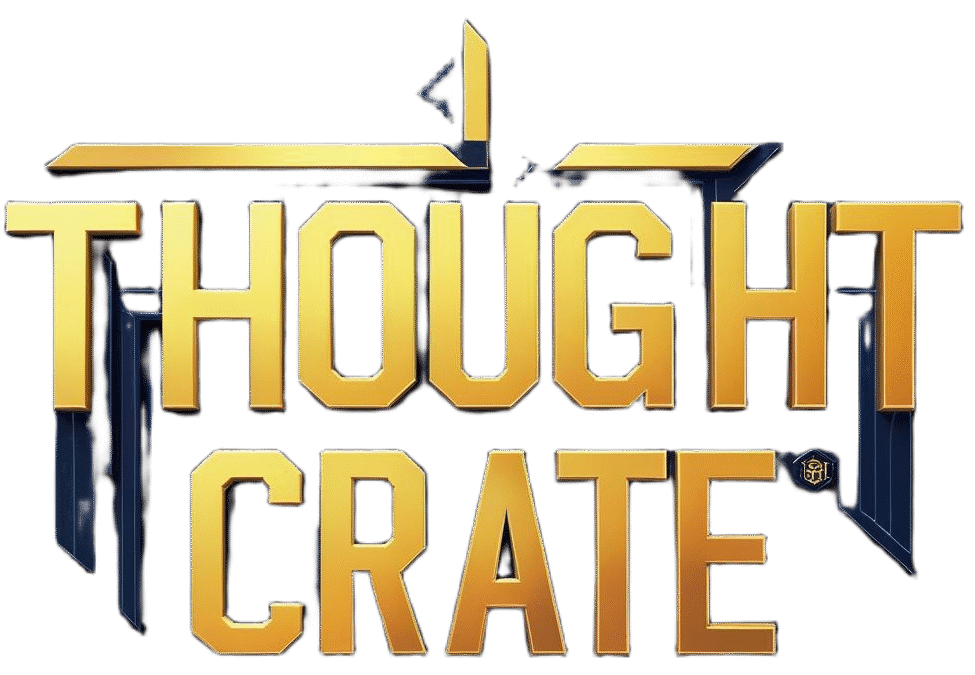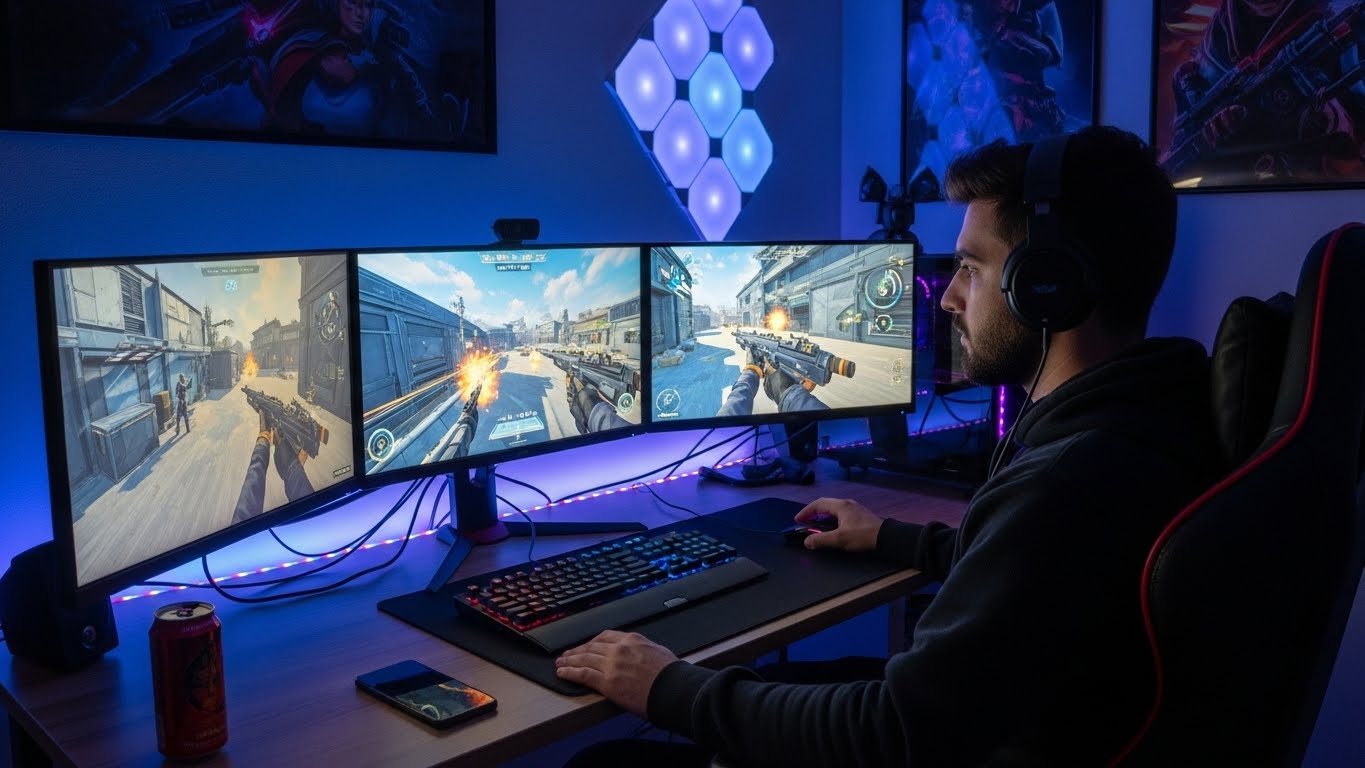Gaming has evolved from a niche hobby into a global powerhouse, transforming how we entertain ourselves, socialize, and even learn. What started with simple arcade games has expanded into a vast digital landscape that spans multiple genres, platforms, and communities. Today, video games are more than just entertainment—they are an integral part of modern culture, shaping everything from social interaction to technological innovation. In this post, we’ll explore how gaming is influencing society and the ways in which it is evolving.
The Transformation of Gaming: From Pastime to Global Phenomenon
In its early days, gaming was a solitary pursuit, often confined to arcades or home consoles. Games like Pac-Man, Super Mario Bros., and Tetris captured the imaginations of millions, but the scope was limited to what hardware could handle. Fast forward to today, and gaming has expanded into a multi-billion-dollar industry, surpassing even film and music in terms of revenue.
The rise of mobile gaming, esports, and online multiplayer experiences has been central to this transformation. People are no longer restricted to playing alone or with a handful of friends; online communities have flourished, and multiplayer games have become central to the experience. Titles like Fortnite, Minecraft, and League of Legends now attract millions of players daily, creating vast virtual worlds where people can interact, collaborate, and compete.
Social Connectivity: How Gaming Brings People Together
One of the most exciting aspects of modern gaming is its ability to bring people together, regardless of geographic location. Multiplayer online games, in particular, have created expansive communities where players can form friendships, alliances, and rivalries. Whether through cooperative missions in Destiny or the competitive challenges of Fortnite, players across the world are joining forces or battling it out in digital arenas.
Gaming communities often extend beyond the game itself. With platforms like Twitch and YouTube, gamers can livestream their sessions, allowing fans to interact in real time. This has led to the rise of “gaming influencers,” people who have built entire careers by sharing their gaming experiences with others. The sense of belonging within these communities is powerful, and many players form lasting friendships, whether online or in real life, through their shared love of gaming.
The Rise of Esports: Gaming as a Career
What was once considered a hobby has now become a legitimate career path for many. Esports, or competitive gaming, has exploded in popularity, with professional gamers earning salaries, sponsorships, and even multi-million-dollar prize pools. Esports tournaments like The International (for Dota 2) and League of Legends World Championship attract millions of viewers, rivaling traditional sports in terms of audience size.
Professional gaming is not limited to just playing; there’s also a burgeoning ecosystem around it, including coaching, broadcasting, and game development. Esports athletes undergo rigorous training, much like traditional athletes, and participate in high-stakes competitions where precision, strategy, and teamwork are paramount. As esports continues to grow, it’s likely that more universities will offer scholarships and formal programs, solidifying gaming as a respected professional field.
Gaming as a Tool for Education and Skill-Building
While gaming is often seen as a form of escapism, it can also be a powerful educational tool. Many games are designed to promote problem-solving, critical thinking, and teamwork. For example, puzzle games like Portal require players to think logically and creatively to progress, while Civilization and Age of Empires teach strategy, history, and resource management.
Moreover, educators are increasingly turning to games as a means to engage students. Game-based learning platforms, such as Kahoot! and Minecraft Education Edition, encourage interactive learning in subjects like math, science, and history. By incorporating gaming elements into the classroom, teachers are able to make learning more engaging and relevant for today’s digital-native students.
In addition, games are also being used to develop real-world skills. Games like SimCity or Cities: Skylines help players understand urban planning and the complexities of managing resources, while simulation games such as Flight Simulator can teach the basics of aviation. As the educational value of gaming becomes more recognized, it will likely become an even more integral part of educational systems worldwide.
Emotional and Psychological Benefits of Gaming
While gaming is often associated with entertainment, it also offers significant psychological benefits. Games provide an outlet for stress relief, offering players a way to unwind and immerse themselves in new worlds. The immersive nature of video games can be therapeutic, helping players escape from the pressures of daily life.
Games can also foster a sense of achievement and personal growth. Many games involve progression systems—whether it’s leveling up a character or completing difficult challenges—that provide players with a sense of accomplishment. This can have a positive impact on self-esteem and mental well-being, particularly when players are faced with challenges in the game that mirror struggles in real life.
Additionally, games with rich, emotionally-driven storylines, like The Last of Us or Life is Strange, allow players to explore deep emotions and ethical dilemmas, often helping them reflect on their own lives. These narrative-driven games have evolved into powerful mediums for storytelling, rivaling films and books in terms of emotional depth and impact.
The Future of Gaming: Virtual Reality and Beyond
The future of gaming is brighter than ever, with new technologies opening up exciting possibilities. Virtual reality (VR) and augmented reality (AR) are already making waves, providing players with fully immersive experiences that go beyond what traditional gaming could offer. With VR headsets like the Oculus Rift and PlayStation VR, gamers can step inside their favorite games and interact with the world in ways that were previously unimaginable.
The potential for VR and AR in gaming is vast, ranging from virtual worlds where players can socialize, explore, and compete, to AR games that blend the digital and physical worlds in real time. As technology continues to improve, the line between reality and the game world will continue to blur, creating entirely new ways to experience games.
Additionally, the rise of cloud gaming promises to make high-quality games more accessible. Services like Google Stadia and Xbox Cloud Gaming allow players to stream games without needing expensive hardware, leveling the playing field for anyone with an internet connection.
Conclusion: Gaming as an Ever-Evolving Cultural Force
Gaming has come a long way from its humble beginnings, and its impact on society is undeniable. From the rise of esports to the educational potential of games, the role of gaming in modern culture continues to evolve. As technology advances and new innovations emerge, gaming will only become more immersive, inclusive, and influential.
For players, gaming is a source of entertainment, emotional connection, and personal growth. For society, it’s an evolving cultural force that shapes how we communicate, learn, and interact with the world around us. Whether for fun, learning, or professional competition, video games have cemented their place in our lives—and they are here to stay.



